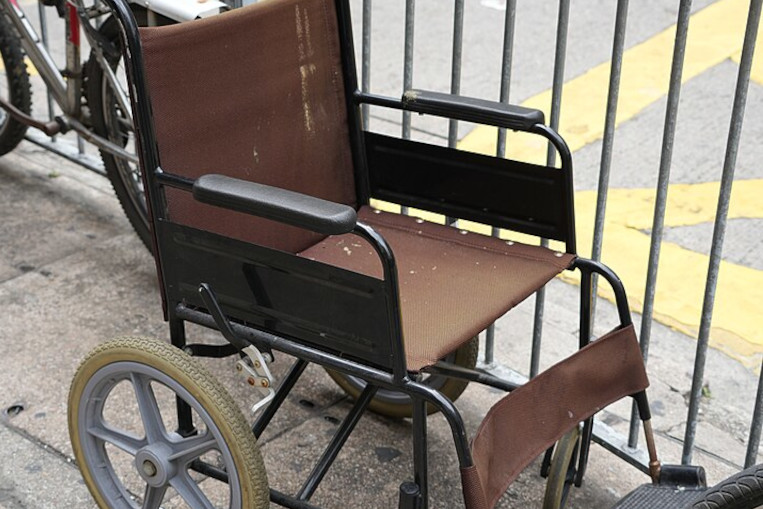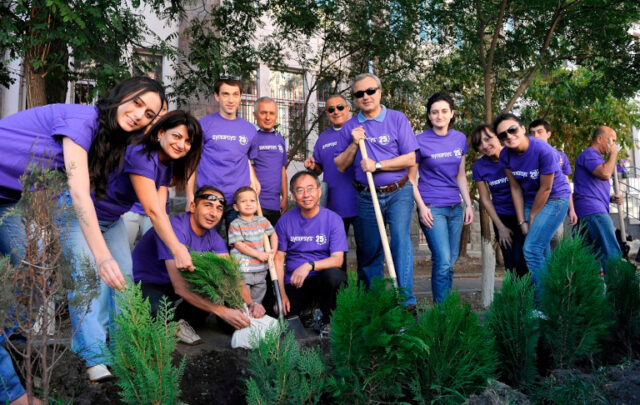When people learn that I have a twin brother named Ethan, their first question is often “What does he do for a living?”. I then explain that Ethan is “profoundly disabled” and lives at a care home. We are taught to judge one another based on what we contribute economically, but Ethan defies these expectations. I wonder if I manage to communicate to strangers how, in spite of his “profound disability”, Ethan is still a profoundly dynamic and important individual.
Ethan and I were born over three months premature. In the polaroid photos I can remember seeing of us as newborns, we appeared like demons in diapers. Our skin was covered in a freakish red fur, and we were so premature that our earlobes had not yet formed. Critically underweight, Ethan and I spent our first several months in the Neonatal intensive care unit. According to one doctor, we were the sickest babies in the hospital.
Although he initially seemed healthier than me, Ethan suffered a massive brain bleed that put his life on a different trajectory. Besides being intellectually disabled, Ethan has cerebral palsy and epilepsy. On top of this, both of us experienced retinal detachments under the bright lights of our incubators. While I became just legally blind, Ethan became fully blind. I appreciate how medical labels can support Ethan’s care, but these labels on their own hardly capture who Ethan is. As my family is fond of saying, “Ethan is Ethan”.
Growing up, I understood that Ethan was different from me in certain ways, but to me, his conditions seemed completely normal. Ethan couldn’t see, speak, or run as I could, but from my perspective as a child, this was simply part of having a brother. Referring to Ethan’s use of a wheelchair, I once said “my brother has wheels”. Only when I started school did I realize the specialness of our situation.
I am frustrated when others struggle to see past Ethan’s conditions. When we were teenagers, a man in the grocery store saw my mom pushing Ethan in his wheelchair and said out loud, “what a burden”. Over the years, countless individuals have observed Ethan with his eyes closed and announced “Oh, he’s asleep”, when in fact he is awake and listening. It weighs on my heart that people may view Ethan as a burden, as an inconvenience, as an absent presence. This understanding of disability not only overlooks Ethan’s own humanity, but denies the idea that Ethan has something to contribute.
I recently found comfort in the book “A Disability History of the United States” by Kim E. Nielsen [1]. Nielsen describes how the traditional indigenous worldviews of North America did not have a concept for what we now call “disability”. According to anthropologist Carol Locust, “…Most indigenous communities did not link deafness, or what we now consider cognitive disabilities, or the shaking bodies of cerebral palsy, with stigma or incompetency.”[2]. Rather, as Nielsen explains, native people widely embraced the belief that “…every person and thing has a gift, be it a skill, an ability or purpose”. By this view, communities that are in harmony support each other in putting their gifts into practice, with individuals sharing their own gifts and benefiting from the gifts of others. Every community member – whether or not they have an obvious impairment – faces limitations that shape their contributions.
Compared to America’s legacy of criminalizing, sterilizing, and institutionalizing the disabled, encountering such an accepting outlook felt liberating. It confirmed what I had long believed, that being “disabled” can be a perfectly valid way of existing, even beautiful. An indigenous perspective shifts the focus from Ethan’s limitations to how we might accept his unique gifts.
Ethan reminds us how love and persistence can prepare us to face our limitations. After he endured his brain bleed, a doctor confidently informed our parents that Ethan was destined to live in a vegetative state. While Ethan may choose some days to remain quiet, when he feels inspired, he can be a delightful chatterbox. He recites from memory a whole library of poems and is fond of bursting into impromptu songs about his favorite activities. He regularly reveals a charming and mischievous sense of humor. Disproving the doctor’s prediction has not been a medical miracle, but a labor of love. I came across a family cassette tape made when we were just a few years old, and it captured my parents devotedly coaxing Ethan to join us in singing songs. As we grew older, the whole family would engage Ethan with rhymes, rhythms, and music, opening up spaces for Ethan to express himself. While the one doctor saw Ethan’s medical challenges, he underestimated the commitment of my family and Ethan’s own perseverance.
Ethan has also informed my understanding of what is meaningful in life. Our culture pushes pursuits of fame and fortune. By contrast, Ethan is concerned with a good meal, an occasional dance session, a well-timed nap, a rewatching of his favorite movies. Ethan remains grounded in a marvelous way. Simply by being his authentic self, he calls into question our destructive distractions. Moreover, Ethan does not attempt to deceive, hold grudges, or make judgements. In a time of exhausting divisiveness, his straightforward openness is refreshing.
Furthermore, Ethan shows how satisfaction can be found in the immediate and every day. When I could still see, I enjoyed pushing Ethan in his wheelchair over to the high school campus. There we would roll our way to the teachers’ parking garage, affectionately known in our family as the Echo Chamber. Ethan would shout and clap his hands while ordering me to “stomp!”, and we would listen to our racket reverberate off the brick walls. Then Ethan would ask for “up the ramp”, my cue to take him to the ramp of the football grandstands. We would roll up and down the ramp as fast as I dared, and for Ethan, an architectural feature that most people might overlook could take on the excitement of a roller coaster.
Despite dealing with challenges most people would find unimaginable, Ethan reveals a vibrant spirit. When we attended church as young teenagers, Ethan would display more enthusiasm than the rest of the congregation combined. While others recited prayers from a script, Ethan would loudly cheer on the pianist, belt out remembered lines, and attempt to mumble along with the priest. If there is truth in religion, I think Ethan’s displays of spirit get closer to the idea than any ancient scripture.
And crucially for me, Ethan was a source of strength as my vision declined into blindness. I was unsure how I would cope or who I would become without sight. Yet having Ethan at my side helped to keep my anxieties in check. Instead of blindness becoming a source of isolation, it grew into another form of connection with my brother.
We wonder sometimes what Ethan’s life would be like if he did not have his challenges. I can easily imagine Ethan being the heart of the party, driving a fast car, and playing drums in a rock band. But that is not to be. I wish that Ethan did not have the challenges that he does, but I am indescribably grateful to have Ethan as my brother, just the way he is. Although Ethan does not have a living in the sense of working for an income, I think we could all take some insights from Ethan into how we might go about living.
[1] Nielsen, K. E. (2012). A disability history of the United States (Vol. 2). Beacon Press. https://www.penguinrandomhouse.com/books/219258/a-disability-history-of-the-united-states-by-kim-e-nielsen/
[2] Locust, C. (1988). Wounding the spirit: Discrimination and traditional American Indian belief systems. Harvard Educational Review, 58(3), 315-331.





